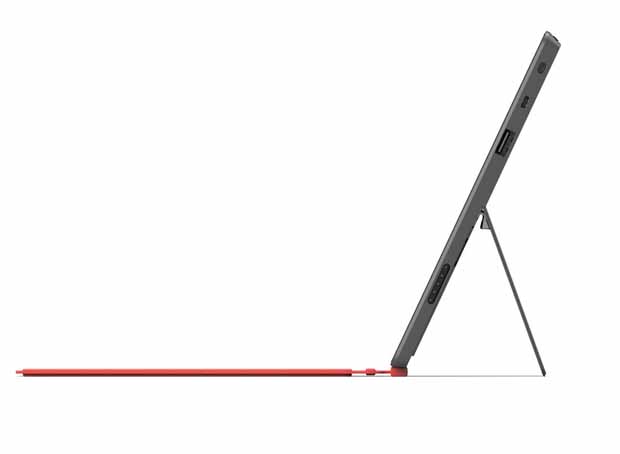Microsoft's Surface: genius or mishmash?

Microsoft's new Surface tablet has been described as a "Swiss Army knife of a tablet". But has the company hit the mark with it, or is it just a "horrible mishmash" of the tablet and laptop worlds?

The Surface, showing the keypad cover and kickstand
(Credit: Microsoft)
The answer to that question depends a lot on price, apps and whether the device is sexy enough for business users to want to bring it into work — but also if Microsoft's enterprise clout is still strong enough to convince companies to buy tablets for their fleets, according to analysts and commentators.
Gartner research VP Carolina Milanesi thinks Microsoft has hit it; at least in terms of the "sex" factor.
"I do think the hardware looks sleek enough to get high-end users interested, especially users who are more interested in a tablet for work purposes," she said.
Unfortunately, there's the possibility that the exciting look might be a bit too hot.
"I'm impressed that they've managed to get a Core i5 into something that small, but I wouldn't want to be holding onto it when the CPU's going," application architect Benno Rice said on this week's Patch Monday podcast.
"If you thought your MacBook Pro singed you in sensitive areas — holding onto this while the CPU's cranking, I think, would be interesting. Although, hopefully, they've tested that."
Possibly, the most interesting part of the design is the kickstand and keyboard that is included in the covers — either a slimmer multi-touch keyboard or a fatter mechanical keyboard, which has analysts calling the design compelling.
Telsyte analyst Foad Fadaghi believes these features give it extra traction in the business market.
"We can't be sure until we try the device hands-on," he said. "A keyboard, however, makes it suitable for content creation and transition from PC to tablet easier for applications like Word and Excel."
Ovum's chief telecoms analyst Jan Dawson pointed out that the design could have IT managers seeing the device as a replacement for the Windows computer, which could net the tablet adoption at the desktop.
Yet, not everyone is convinced.
Technology author and broadcaster Paul Wallbank said on Patch Monday that most people have got used to using an Apple-type keyboard, and offering a mechanical one feels like a step backwards.
"This is: 'welcome to 1990s'," he said.
And, while IDC analyst Al Hilwa told Marketwatch that Microsoft's tablet was a "Swiss Army knife", and it was great that Microsoft had "put a stake in the ground in terms of how they imagine the future of the PC", other analysts are worried about what this means for its relationship with its original equipment manufacturers (OEM).
"What does it say about the tablets Microsoft is seeing from its OEM partners as it gets ready to launch Windows 8, that they felt they needed to launch their own tablet?" Dawson asked.
"Either they are not happy with the devices out there, or they are not satisfied with only taking a licence fee from selling Windows based tablets. Either way, it is a huge vote of no confidence in its OEM partners, who should rightly feel slighted. It is rarely a good idea for an OS owner to start competing with its OEM partners, and this does not feel like an exception."
Gartner's Milanesa said that the point of Microsoft making the tablet was more about luring people onto the Windows 8 Metro interface, than about the hardware, itself.
"The point here, for me, is more about showing off Metro as a UI. Put some sexiness back in the Microsoft brand and ultimately remain the main computing OS, while migrating their user base over to Metro."
But Ovum's Dawson is sure that Windows 8 and the tablet is not a match made in heaven.
"There are no surprises in the software — the Surface tablet uses the same two desktop and RT versions of Windows 8 that we've been hearing about. As such, nothing has changed there, and it still looks like a huge break with the past on the surface, but with a jarring switch back to the old desktop world hidden beneath," Dawson said.
"In theory, it delivers all the benefits of both the tablet-optimised environment and the classic desktop approach and apps, but in reality, the versions available to try at the moment are a horrible mishmash of the two worlds that is likely to be confusing for the consumer."